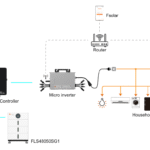Most students revise by reading notes until the pages blur, then hope recall appears under pressure. A studio method takes the opposite path. You practise like a musician in short, focused sets, then measure the gain before moving on. If you already attend JC Economics tuition, this approach turns homework into targeted drills and shows exactly where time pays off.
Build A 20-Minute Revision Lab
Create a small setup you can repeat anywhere. Set a timer, open one past prompt, and choose a single skill to train, such as a clean market failure diagram with a two-sentence explanation. When the bell rings, you stop, mark the attempt, and log one improvement for the next round.
Calibrate With An Examiner’s Lens
Mark schemes reward what they can see and count. Keep a one-page checklist beside you that names the scoreable moves: define the key term, state the mechanism, signpost welfare effects, and link to context. After each lab, tick what appeared on the page and circle what did not.
Train The Graph–Sentence Switch
Weak scripts drift between pictures and prose. Practise a tiny loop where you draw a labelled diagram, write two sentences that reference those labels, and add a neat welfare note. The habit links visuals to argument so your essay reads like economics, not general commentary.
Turn News Into Trigger Cards
Pick a short article and extract one data point, one policy lever, and one possible evaluation angle. Write them on a card and store them by theme. In the next lab, pull a random card and use it to sharpen your example. You will avoid vague essays because every claim carries a concrete anchor.
READ MORE: IB & JC A-Level Economics Definitions You Should Know By Heart
Use The Essay Engine
Build essays from three reliable moves. First, answer the question in a single line that names the mechanism. Second, build a paragraph that links a clear diagram to a clear effect on stakeholders. Third, evaluate with a condition that limits the claim. Repeat the cycle until the word limit arrives.
Practise Data Comments As Micro-Tasks
Many exams include short extracts or tables. Spend five minutes reading only axes, units, and time frames, then write three lines that connect the data to a syllabus idea. You will learn to avoid traps like mistaking levels for rates or ignoring seasonality.
Measure Progress Like A Scientist
Keep a tiny scorecard with three numbers after each lab: coverage of the checklist, clarity of diagrams, and strength of evaluation. Plot the numbers weekly. Improvement becomes visible, which keeps motivation steady when the syllabus feels long.
When Tuition Adds Leverage
A good tutor shortens the path between effort and mark. Bring your checklist, scorecard, and two lab attempts to each session. Ask for one correction per weakness, not a flood of notes. The best JC Economics tuition builds lab prompts that match your profile and sets homework that fits your score gaps.
Avoid Fatigue With Rotation
Alternate skill days to protect focus. One day can be diagrams and mechanisms, the next can be policy essays, and the third can be data commentary. Short, honest sets beat late-night marathons, and you will remember more because the brain loves spaced, varied practice.
Set Exam Conditions Early
Once a week, stitch two labs into a mini paper under time. Keep the same chair, the same watch, and the same pen you will use later. Familiarity lowers nerves, and a steady routine reduces unforced errors like mislabelling axes or skipping a definition.
Make Evaluation Practical
Write conditions you could test in the real world. If you claim a tax reduces sugar consumption, name an elasticity and a time horizon. If you argue a subsidy helps small firms, mention capacity, entry barriers, or crowding. Practical evaluation reads confident and earns credit.
Conclusion
A studio method replaces vague revision with repeatable work that moves the mark. You rehearse one skill at a time, you score against a checklist, and you bring tight questions to each lesson. Over a few weeks, essays gain structure, diagrams carry weight, and evaluation sounds precise rather than hopeful. If you want a routine that respects time and shows progress on paper, this lab approach delivers.
For personalised lab prompts, clear marking checklists, and targeted feedback that fits your timetable, contact The Economics Tutor.


